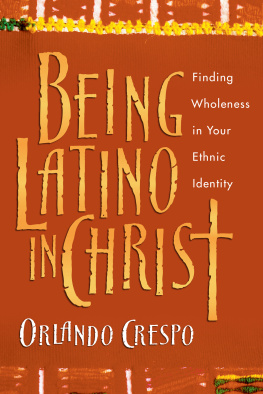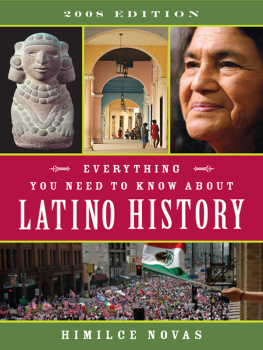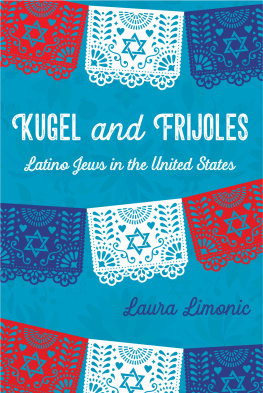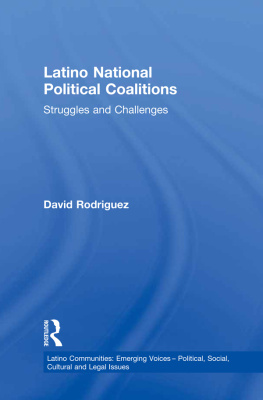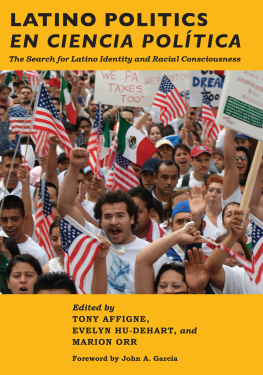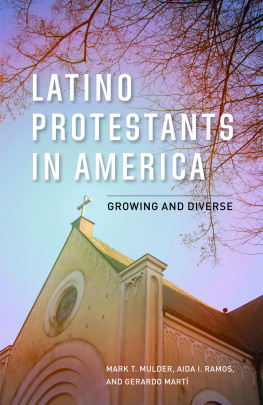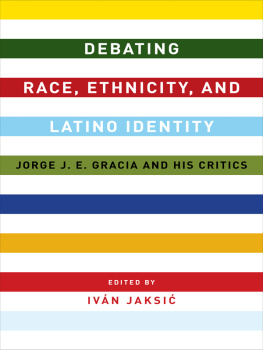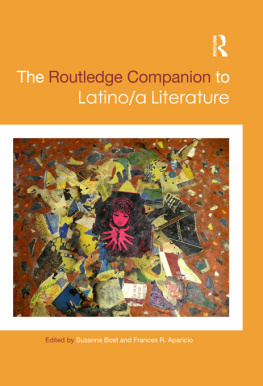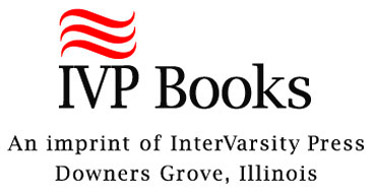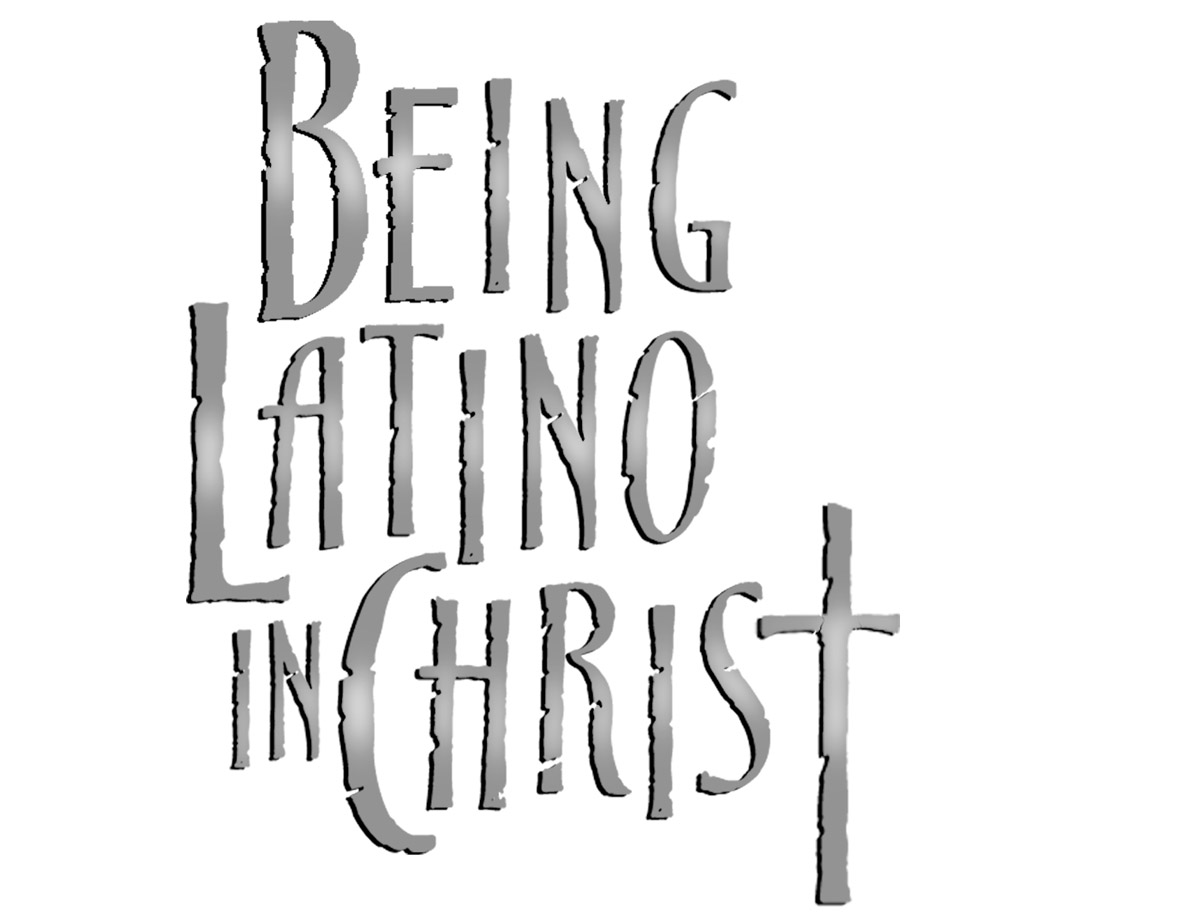
Finding Wholeness
in Your Ethnic Identity
ORLANDO CRESPO
To mi familia Crespo.
To my loving wife, Maritza, who has always affirmed me in ministry and still likes me.
To my son Daniel who taught me to be honest even when it hurt.
To my son David who taught me to be myself no matter who might be watching.
To my parents, Francisco and Casilda, for loving me unconditionally.
To my brother, Edwin, and sisters Marilyn, Sandra and Milagro for always being there when I needed them most.
InterVarsity Press
P.O. Box 1400, Downers Grove, IL 60515-1426
World Wide Web: www.ivpress.com
E- mail:
2003 by Orlando Crespo
All rights reserved. No part of this book may be reproduced in any form without written permission from InterVarsity Press.
InterVarsity Pressis the book-publishing division of InterVarsity Christian Fellowship/USA, a movement of students and faculty active on campus at hundreds of universities, colleges and schools of nursing in the United States of America, and a member movement of the International Fellowship of Evangelical Students. For information about local and regional activities, write Public Relations Dept., InterVarsity Christian Fellowship/USA, 6400 Schroeder Rd., P.O. Box 7895, Madison,WI 53707-7895, or visit the IVCF website at .
All Scripture quotations, unless otherwise indicated, are taken from the Holy Bible, New International Version. NIV. Copyright 1973, 1978, 1984 by International Bible Society. Used by permission of Zondervan Publishing
House. All rights reserved.
Design: Cindy Kiple
Images: Bill Noll/iStockphoto
ISBN 978-0-8308-7450-7 (digital)
ISBN 978-0-8308-2374-1 (print)
This digital document has been produced by Nord Compo.
INTRODUCTION
Hispanic Americans have been here for so long, and yet kept their identity, that it is rather doubtful they will follow the same process of assimilation by which Swedes, Irish and Italians joined mainstream American society. Especially now that there is an increasing awareness of the value of ones culture and traditions, it seems safe to predict that Hispanic Americans will be around maana (tomorrow), and for as many maanas as it pleases God to grant to this country. Hispanic Americans are going back to their historic roots and affirming their distinctive, not as something of which to be ashamed or to hide from view but as something of which to be proud and to exhibit at every possible opportunity.
JUSTO GONZLEZ, MAANA: CHRISTIAN THEOLOGY FROM A
HISPANIC PERSPECTIVE
I n 1999 I saw a movie, Bicentennial Man starring Robin Williams, that struck a chord in me as a Latino in the United States. In the movie robots have become enormously sophisticated; their design includes human along with mechanical anatomy, intermingling and interconnecting. If either human or mechanical elements malfunctioned, the robot would stop working. In the climax of the movie a human robot, played by Williams, goes before a world congress, which debates the dignity and worth of these new hybrid beings and whether they deserve to have the same rights as fully human beings. The films most intriguing and underdeveloped aspect involves the portrayal of a society of humans who resist full acceptance of the humanized robots.
The U.S. Latino experience is like this. Those of us who have been born and raised in this country are a new breed of Latinos/Americans in whom both identities are in operation and who struggle for acceptance in both parent cultures. We are not one or the other. We are both. In Living in Spanglish: The Search for Latino Identity in America, Ed Morales puts it this way: Latino culture, particularly our Spanglish American variation, has never been about choosing affiliation with a particular raceit is a space where multiple levels of identification are possible. If the postmodern era is characterized by unprecedented heterogeneity and randomness, then Latinos are well prepared to take advantage of it.
I have spent much of my life in this space of multiple identifications, fighting not to choose one over the other, but living in the blessings and contradictions of both. I have decided that I love being somewhere in the middle of both my Latino and American worlds. It has been a place of sadness as I have had to face the cultural weaknesses of each, but somehow instead of becoming bitter, I have been filled with Gods comfort and strength as he has come close to me. I have come to realize that my Latino identity in this countrya conjoining of two ethnic identities is about God designing a new breed he is pleased to use to influence both cultures and the world.
As a follower of Christ, I have chosen a new path of trust. This trust is no longer based on my own instinct, which is frequently distorted with my own fears, but on the reality that God is committed to my well-being. I have chosen courage because it is the thing I lack most. If I can be courageousand this is where the cutting edge of my faith reststhen my obedience to Christ truly has meaning and his power can be manifest in and through me. I have reasons to pity myself, but my faith in Christ has blocked the natural course of my self-loathing. I know too much about God to sit back and do nothing. I have therefore chosen to walk into the confusion of biculturalism, trusting that God will be in those places waiting for me. The Apostle Paul said it well when he faced his weaknesses and said: Three times I pleaded with the Lord to take it away from me. But he said to me, My grace is sufficient for you, for my power is made perfect in weakeness. Therefore I will boast all the more gladly about my weaknesses, so that Christs power may rest on me. That is why, for Christs sake, I delight in weaknesses, in insults, in hardships, in persecutions, in difficulties. For when I am weak, then I am strong (2 Corinthians 12:8-10).
This is why I have chosen to think and write about my experience of growing as a Latino Christian, a journey of knowing more about the multidimensionality God has created in me. Understanding myself in the realm of ethnicity has informed me about the goodness and power of God. And knowing the love of God has led me to embrace who I am as a Latino. I want to share my sorrows and joys with you, hoping that my journey of self-understanding may help you snap together some pieces of the puzzle of your own life.
As a second-generation Latino, I write this book for other second- (and third- and fourth-) generation Latinos who are trying to hold in tension their dual identity. While the media is giving increased recognition to Latino culture in the United States, many young Latinos still do not know how to incorporate their ethnic identity into who they are as people. They often swing to extremes, from totally assimilating into American mainstream culture to believing that the Latino culture is superior to all others.
In this book I argue that most Latinos born in the United States will be happiest somewhere in between. I seek to point us toward a healthy balance as we gain a conceptual understanding of Latino ethnic identity and learn how to practically live out our God-given strengths and gifts.
Here is a brief synopsis of what you can expect. Chapter one tells of my own journey toward ethnic self-discovery. In chapter two I explore a new Latino identity that has less to do with the country of origin although it starts thereand more to do with the Latino experience in the United States. My goal in this chapter is also to broaden the net of who is Latino when many are questioning if they are Latino enough. Please note that for the sake of brevity I am using the term
Next page
